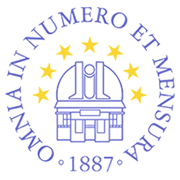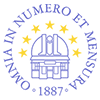Two lectures will he held within the Colloquium of the Astronomical Observatory on Thursday, April 24:
1. Lecture beginning at 12:00:
Speaker: Yerlan Aimuratov from Feseknov Astrophysical Institute in Kazahstan
Topic: Prospects for High-Energy Astrophysics Lab at FAI
Resume: We outline the current studies at the Fesenkov Astrophysical Institute (FAI, Almaty, KZ) with a focus on high-energy research conducted therein. It includes high mass x-ray binaries (HMXB) and gamma-ray bursts (GRB). We discuss recent results in both studies and draw a general prospect for the development of dedicated laboratory within FAI, where the active collaboration is welcome to everyone.
2. Lecture beginning at 13:00:
Speaker: Michal Bilek, Astronomical Observatory
Topic: Peculiar dark matter halos inferred from gravitational lensing as a manifestation of modified gravity
Resume: The missing mass problem has not been solved decisively yet. While the currently popular LambdaCDM cosmology can explain many observations, it also fails to explain many others. It is then worthwhile to explore the alternatives. In my talk, I will point out that an effective way to distinguish between the various dark matter and modified gravity theories is to make use of the gravitational lensing around isolated galaxies and their pairs. I will focus on difference in gravitational lensing between the LambdaCDM hypothesis and the QUMOND modified-gravity version of the modified Newtonian Dynamics (aka MOND). This exploration is particularly timely, since the recently launched Euclid satellite is expected to vastly improve our capabilities to observe gravitational lensing. It turns out that MOND predicts lensing features that LambdaCDM cannot replicate. They should be detectable with Euclid.
The talk will be recorded and posted on the Observatory's Youtube channel.









































